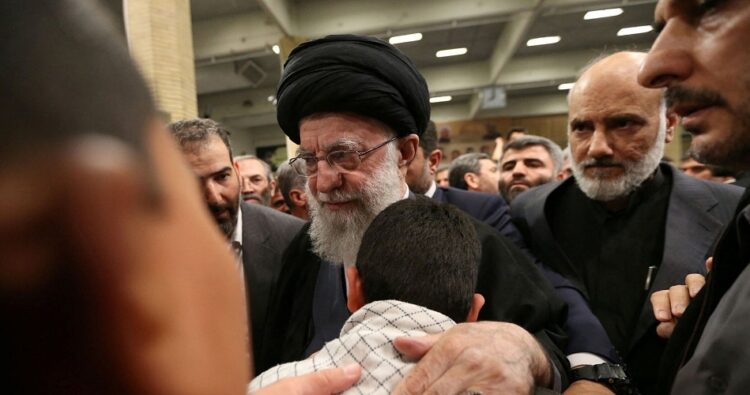In a provocative Eid al-Fitr speech delivered on Wednesday to thousands in Tehran, Iran’s Supreme Leader Ayatollah Ali Khamenei condemned Israel and the West for their actions in Gaza during Ramadan. Khamenei, addressing the crowd amidst chants of support, decried the attack on the Iranian consulate in Syria, likening it to an assault on Iranian soil. He vowed that those responsible for the attack would face punishment, escalating tensions in the region.
Israeli Foreign Minister Israel Katz responded swiftly to Khamenei’s rhetoric, warning that any Iranian aggression would be met with a strong response. Katz underscored Israel’s commitment to defending itself against threats originating from Iran.
Since the April 1 Israeli airstrike in Damascus, which targeted Islamic Revolutionary Guard Corps (IRGC) commanders in Syria and Lebanon, Khamenei and other Iranian officials have repeatedly threatened retaliation. The strike was perceived as an attack on Iranian territory, heightening the possibility of direct Iranian intervention rather than through its proxies in the region.
Meanwhile, the Islamic Resistance in Iraq claimed responsibility for launching two drones at the port city of Haifa early on Wednesday. This group, known for its attacks on US forces in Iraq and Syria, has intensified its activities amid escalating tensions in the Middle East.
Additionally, Hezbollah in Lebanon and the Houthis in Yemen have continued their attacks on Israeli and Saudi targets respectively, contributing to the volatile situation in the region. The exchange of fire between Hezbollah and the Israeli military has become a daily occurrence since the onset of the conflict in Gaza, while the Houthis persist in launching attacks in the Red Sea.
The developments underscore the precarious situation in the Middle East, with escalating tensions between Iran and its adversaries threatening to further destabilize the region.
















Comments